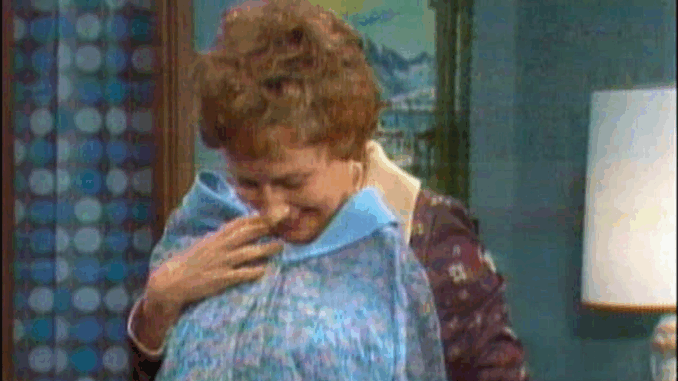
When All in the Family aired the episode “Edith’s Friend,” it didn’t just deliver another installment of 1970s sitcom storytelling—it broke new ground. Originally aired in 1977, this powerful episode dared to explore themes that most shows of its time were too cautious to even touch. Through its quiet strength, “Edith’s Friend” became a landmark in television, blending humor, humanity, and courage in a way that left a lasting legacy.
A New Side of Edith Bunker
Edith Bunker, played masterfully by Jean Stapleton, had long been the heart of the series. Known for her kindness, empathy, and enduring patience with her often narrow-minded husband Archie, Edith typically stayed in the background while Archie took center stage. But “Edith’s Friend” flipped the script, giving her a storyline that put her moral compass and compassion front and center.
In this episode, Edith reunites with her long-lost childhood friend Beverly LaSalle—an openly transgender woman and a recurring character who had previously brought both levity and poignancy to the show. The warmth of their friendship is heartening, but when tragedy strikes, the episode takes a dark and emotional turn, confronting viewers with the real-world dangers of prejudice and violence.
Confronting Tragedy with Grace
Without resorting to melodrama, the episode navigates Edith’s grief and confusion after Beverly becomes the victim of a hate crime. What sets this episode apart is its refusal to sugarcoat or sensationalize. Edith’s emotional reaction is raw and deeply human—she is heartbroken, questioning her faith, and devastated by the cruelty of the world. Through her, the audience is invited to feel, reflect, and ultimately empathize.
In an era where LGBTQ+ issues were rarely depicted on mainstream television, and when they were, often trivialized or caricatured, All in the Family dared to take a stand. It didn’t just raise awareness—it forced a conversation.
Archie’s Unexpected Evolution
While Edith’s emotional journey is the core of the episode, Archie’s role cannot be overlooked. Known for his bigoted views, Archie surprisingly shows support in his own flawed but heartfelt way. This small but crucial character development reveals how love and grief can soften even the most stubborn of hearts, and it subtly hints at the possibility of change—even in someone like Archie Bunker.
Why “Edith’s Friend” Still Matters
Decades later, “Edith’s Friend” remains a shining example of how sitcoms can be more than entertainment. It showcased the strength of empathy, the pain of loss, and the quiet bravery of standing up for what’s right. It didn’t preach; it told a story—and in doing so, it left an indelible mark on television history.
As audiences continue to revisit All in the Family, this episode serves as a reminder that meaningful representation and powerful storytelling can go hand in hand. “Edith’s Friend” didn’t just entertain; it enlightened—and that’s what makes it truly unforgettable.